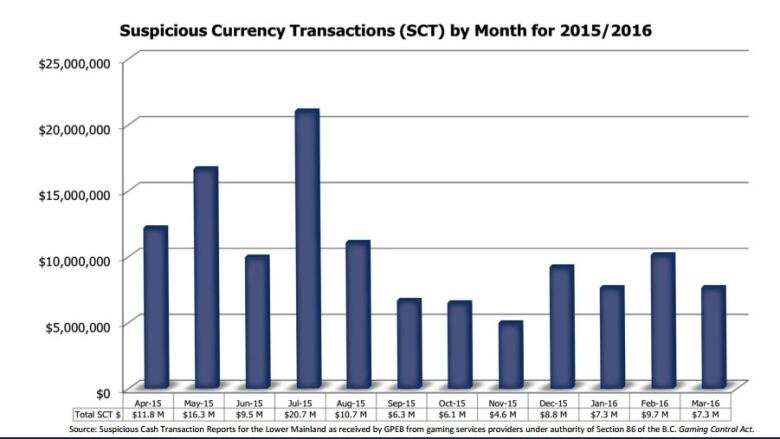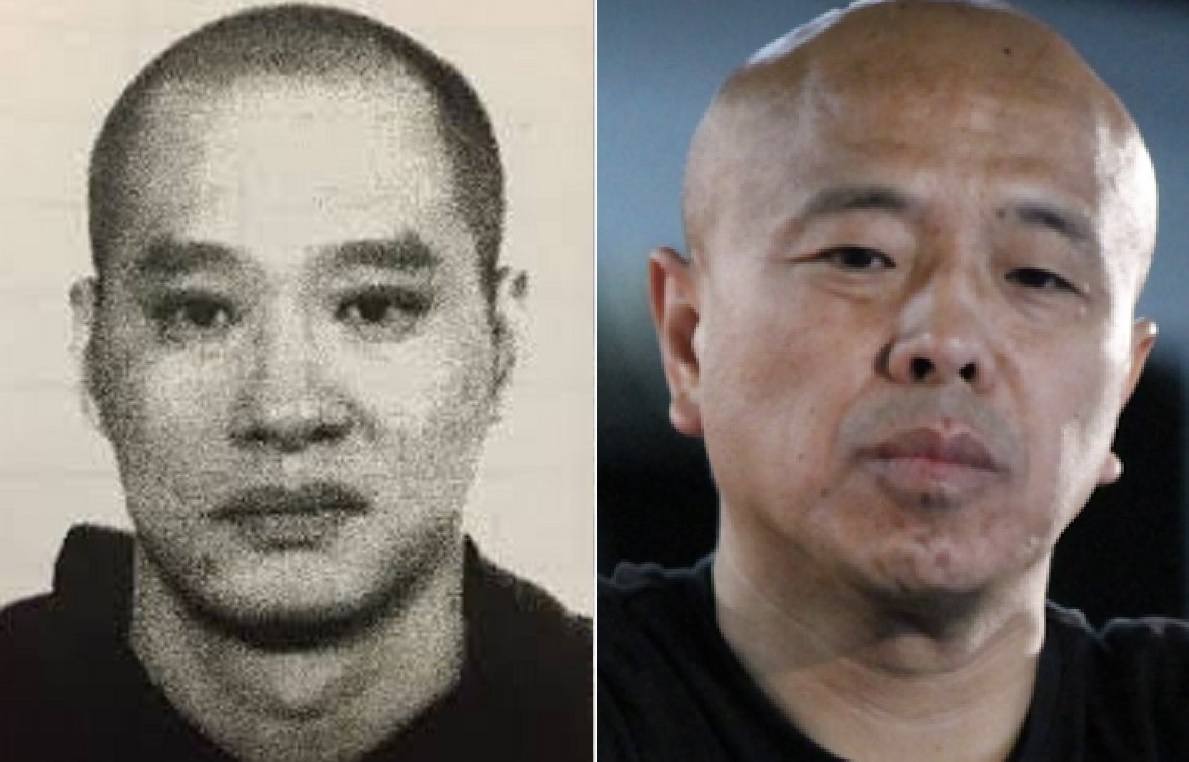Bc Casino Laundering
- It led to the appointment of a third-party auditor for the three casinos in the province, who was to make sure they are fully compliant with the new anti-money laundering measures. Casinos struggling. The largest casino in the province is the Parq Vancouver casino, which opened on September 29, 2017.
- Former British Columbia gaming minister Rich Coleman and senior RCMP officers caused a “tsunami” of casino money laundering, said the province’s former solicit-general, according to a.
The anti-money laundering report was commissioned by the previous BC Liberal government and dated July 26, 2016, but not released until Sept. 22 by the NDP government. MNP was hired in September 2015 after the Gaming Policy and Enforcement Branch compiled a document that identified $13.5 million in $20 bills were accepted at River Rock in July.
A report that was privately commissioned in 2016 to look at the problem of money laundering and criminal activities in BC casinos was released publicly today by the province.
The government said the findings reveal “suspicious cash transactions” at BC gaming facilities, including the River Rock Casino in Richmond.
The report was released on Friday by BC’s Attorney General David Eby, who said the probe is a result of “briefings that caused me to believe that our province could do more to combat money laundering at BC casinos.”

The report, he said, “makes a series of serious recommendations for reform, which should have been made public at the time the report was complete.”
The report was commissioned by Dave Boychuk with the Gaming Policy Enforcement Branch and was completed in July last year.
“I am making that report public today,” added Eby.
The report states that the issue of casinos – the River Rock in particular – accepting large volumes of cash is one that has “been a growing concern in the province for years.”
And it’s the source of that cashflow that is in question.
The report also states that there are “reasonable grounds” to “suspect money laundering” through the use of unsourced funds.
The document also reveal that through a series of interviews, it was determined that those involved are “wealthy non-residents, or business persons with interests in both Vancouver and China, coming to Vancouver to gamble.”
The BC government said that in the coming weeks, the Attorney General will announce the appointment of an independent expert to review whether there is an unaddressed, or inadequately addressed, issue of money laundering in Lower Mainland casinos.

“Criminal activity and money laundering in our casinos and elsewhere in BC will not be tolerated,” said Minister of Public Safety and Solicitor General Mike Farnworth.
“The problem of money laundering is complex, but a committed government can make a difference,” said Eby. “We are serious about doing everything we can to identify money laundering activities, and ensure policies are in place to prevent it from occurring in BC casinos. ”
BC Lottery Corporation (BCLC) president Jim Lightbody said the corporation takes its responsibility to manage gaming in the province “very seriously.”
He added that BCLC has “zero tolerance for criminals who may attempt to target our business.”
Bc Casino Money Laundering
According to Premier John Horgan a public inquiry may be needed to decipher how money laundering penetrated B.C. casinos and continues to drip down into the real estate market.
The news of money laundering broke back in June of this year in a report released by former RCMP commissioner Peter German. German was hired by the provincial government to investigate what was revealed to be a devastating collective system failure. The issue grew substantially over time until it exceeded the existing legislation’s capability to handle it.
Over the course of many years, certain Lower Mainland casinos were operating entirely unaware of the fact that they were serving double duty as ‘laundromats’ for organized crime. German’s comprehensive 247-page report detailed how criminals would regularly show up to cashier wickets with hundreds of thousands of dollars in wads of $20 bills. The money laundered through these casinos was connected, in some instances, to international as well as domestic organized crime rings participating in drug trafficking and distribution. German also uncovered that those engaging in the money laundering were purchasing real estate while explaining to others how they should manage their real estate transactions.

CBC’s investigations into the sketchy activities of B.C. casinos dates all the way back to 2004, when it aired a story about loan sharks operating out of a major B.C. casino. Security staff alleged that they had been instructed by their employers to intentionally divert security cameras away from any loan sharks on the floor, stating that the casino did not want any evidence of them being there, thus ensuring that nothing would have to be reported to regulators.
These events sparked curiosity in reporters who wondered what other instances of criminal activity had provincial casinos been filing with the government. Thus, the CBC submitted a Freedom of Information request to obtain these records. After four years of the government vigorously fighting to keep the documents under wraps, then-commissioner David Loukidelis ruled in favour of the CBC. Later, Woodward was provided with $30,000 to attempt to launder through two B.C. casinos.

Woodward, national radio reporter Curt Petrovich, and then-intern Teresa Tang divided the money between themselves. They planned to put $20 bills into the slot machines, play a couple of rounds, and then “change their minds” and cash out, with the pre-existing knowledge that instead of issuing a return, the machine would print out a cash voucher. They would then take these vouchers to the cashier and redeem them for cash deducing that, if they procured enough of the vouchers, the casino might return the money in the form of cheques. At the first casino they visited, Great Canadian Grand Boulevard Casino in Coquitlam (which is now the Hard Rock Casino), the group quickly converted $15,000 into cheques. However, the second casino they tried, Gateway’s Grand Villa in Burnaby, proved to be more difficult.
Petrovich was effortlessly able to exchange his vouchers for a cheque totalling $9,000 dollars. However, Woodward was informed that she did not receive enough vouchers to warrant a check while Tang was blatantly refused with a cashier requesting proof that her vouchers represented verified prize money. The investigation revealed that the reporters were able to launder a total of $24,000 of the $30,000.
Bc Casino Money Laundering Report
David Eby, Q.C., a lawyer and Member of the Legislative Assembly of British Columbia, ordered a review last year following a report involving someone at Richmond’s River Rock Casino accepting $13.5 million from an individual gambler in July of 2015. Eby claims that the recent laundering is directly correlated to the current opioid crisis claiming the lives of thousands in British Columbia as well as the escalating housing prices that are making it nearly impossible for anyone to afford to live in the province. When asked if conglomerates such as the B.C. Lotteries Corporation should claim responsibility for not putting more preventative measures in place, Eby contended that he places the blame on the former B.C. Liberal government. He claims to be working closely with Finance Minister Carole James to address and analyze issues associated with the housing market, specifically with problems about development and mortgages but also the sale of commercial and residential properties. Working on sorting out how the laundering affects the housing market is going to be the most significant hurdle as real estate drives the British Columbian economy, while gaming sees less of an impact.
Eby’s promise to correct the mistakes made by the previous government seeks to expand the focus of the investigation from casinos to real estate, luxury cars, and horse racing. However, SFU political scientist David Moscrop claims that though his intentions may be good, Eby could lose a lot of voters if he does not deliver, stating that the best thing B.C. Liberals can do for the moment is merely stay quiet and watch out for what comes next.
German’s report makes 48 recommendations calling for massive reforms, including appointing an independent regulator to oversee the gaming and casino industry as well as the implementation of a police force operating at all times with the sole purpose of combating money laundering. He concluded that at least $100 million had been laundered through casinos. However, without an official forensic audit, he is unable to provide a reliable estimate.